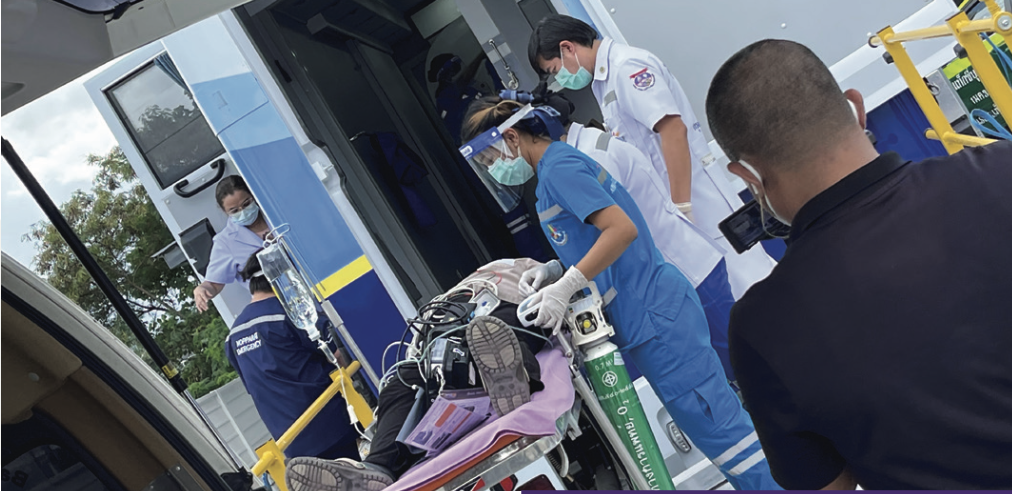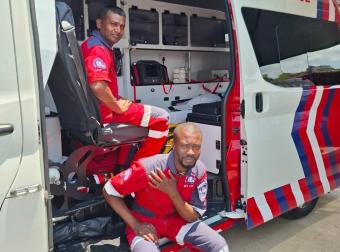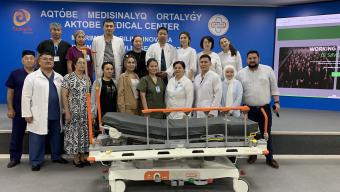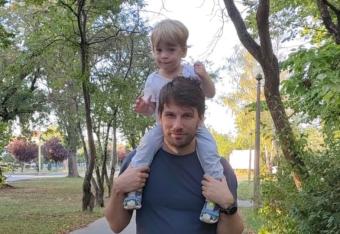The deployment of mobile stroke units in Thailand has the potential to save lives and reduce disability in stroke survivors. A simulation exercise with the Angels Thailand team puts it to the test.

Time is of the utmost importance in the treatment of acute ischaemic stroke patients. The sooner patients receive treatment, the more likely they are to survive the event and return to their lives with minimal disability. Managing time means saving lives faster, but traffic and terrain present significant obstacles in reducing travel time and the interval between onset and treatment.
Mobile stroke units are a new approach to accessing faster patient care. They have the potential to significantly cut down the time it takes for stroke patients to access treatment; reaching patients faster, and diagnosis and treatment can be promptly managed en route to the hospital, increasing the likelihood of survival and quality of life.
Mobile stroke units are already operational in five zones in Thailand, to support the treatment of stroke patients in the community. In 2021, they became the subject of a study conducted to assess and improve their capacity for reducing treatment time. The Angels Thailand team initiated two virtual mobile stroke unit simulations – the country’s first – at the Neurological Institute of Thailand, a specialised hospital in neurology located in Bangkok, and at Nopparat Rajathanee Hospital, a major teaching hospital affiliated to many medical schools throughout Thailand.
The simulation exercise at the Neurological Institute of Thailand drew approximately 30 participants, including emergency physicians, neurologists, stroke nurses and radiologists. It opened with a discussion to understand the process governing the mobile stroke unit, after which the Angels team shared their suggestions for adjusting the workflow to make it more convenient and faster. The system was then tested in a virtual event recorded on video.
The simulation began when a “patient” called the hospital’s hotline 1669 to report symptoms that suggested stroke. A mobile stroke unit carrying a physician, nurse and radiologist was dispatched to the scene, where they evaluated the patient for stroke. A CT scan was performed on board the unit and the images were transmitted via a system that connected the vehicle and the hospital.
After remote consultation with a neurologist connected via the telemedicine network, the decision was made to treat the patient with thrombolysis. The physician on board the mobile unit immediately administered the bolus, resulting in the patient receiving rt-PA within 20 minutes after the mobile stroke unit arrived. The unit then returned to the hospital, where a team of specialists stood ready to receive the patient, who was admitted to the stroke unit.
The simulation showed that mobile stroke units can reduce time to treatment to between 30 and 60 minutes, compared with the median door-to-needle time of 120 minutes for patients travelling to the hospital without any assistance. Mobile stroke units offer a good alternative pathway for patients with acute stroke, and opportunities for adjustment and improvements emerging from the simulation, suggest it can become an even more powerful tool in the fight against stroke-related mortality and disability.



